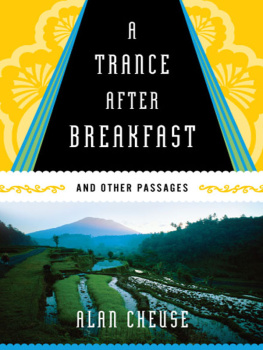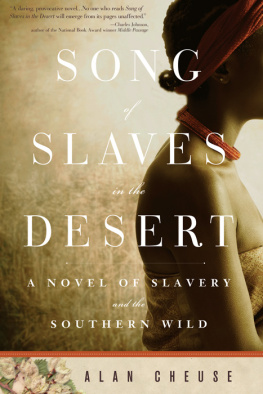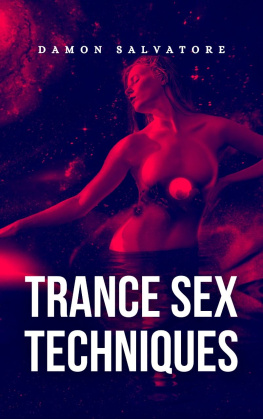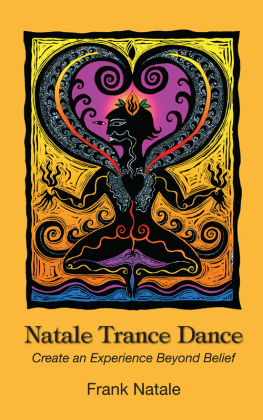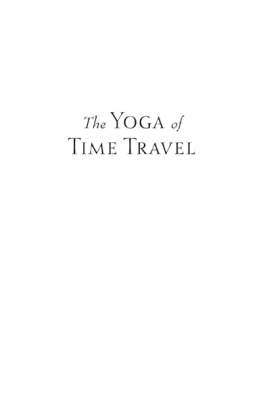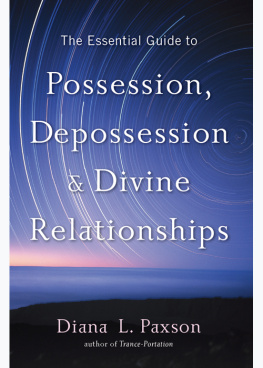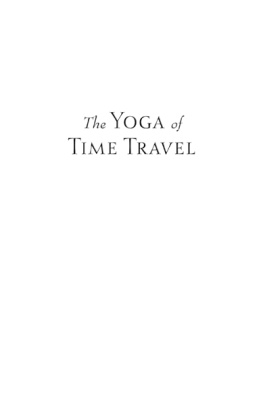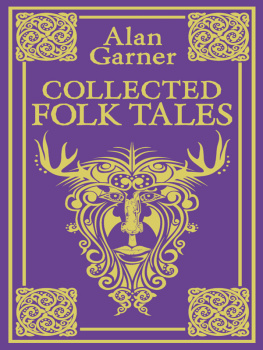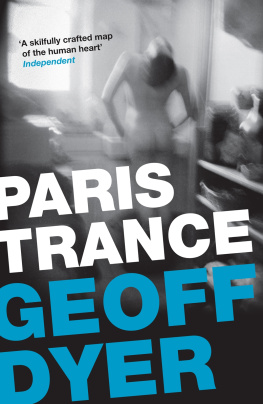Praise for Alan Cheuses
A Trance After Breakfast
Its very good to travel with Cheuse, the literate Jersey boy whos lived long enough to think its time to see the rest of the world. As our guide, hes seeing it all for the first time, just like we are (though hes read about it), so that hes dazzled, moved, impressed, shocked, instructed and provoked. He is us, in other words. And he relishes the vast world outside his ken as if it were a rare jewel.
Richard Ford
Alan Cheuses evocations of placethe water world of his youth on the Jersey shore, his tramps in Bali and New Zealand, his inquiries on Californias border with Mexicoare Whitmanesque in their enthusiasm and captivating in all their particulars. His observations on the way various writers have approached Southeast Asian settings in their novels, on the one hand, and his thoughts on Jewish cultural life in Mexico, on the other, are the reflections of a charming and original mind.
Barry Lopez
Serious readers have come to think they know Alan Cheuses voice. His is the discerning baritone on NPR. But he possesses a range of voices that covers the spectrumcomic, declarative, elegiac, lyrical, compassionateand all of them are on marvelous display in A Trance After Breakfast. More than just a collection of travel essays, the book describes vivid inner and outer journeys, and captures with special poignancy the ambivalences of borderlands. The three pieces about San Diegos shadow city, Tijuana, are worth the price of a plane ticket anywhere on earth.
Michael Mewshaw
This is how I want to learn to travel, with Alan Cheuses eye and ear and brain and, most of all, heart. A love affair of fierce currents, indeed. A Trance After Breakfast will endure as a model for the engaged explorer, even the armchair sort.
Josephine Humphreys
Praise for Alan Cheuses
To Catch the Lightning
Vivid and poignantCheuses ambitious historical novel illuminates one mans heroic obsession and the perpetual dichotomies of duty and dream, discovery and loss.
Booklist
An engrossing tale of sacrifice, passion, and devotion to purpose not often exhibited by any man... To Catch the Lightning will, once again, bring both fame and immortality to Edward Curtis and Alan Cheuse.
ForeWord Magazine
Sympathetic and affecting... A worthy effort.
Kirkus
The narrative brims with keen insight.
Publishers Weekly
To Catch the Lightning is a story of lossof choices made and prices paid, of the future coming fast and the past disappearing faster. Cheuses narrative is refracted through multiple voices, each distinct, but each containing its own poetic precision. A wonderful, wonderful book of quiet power and great beauty.
Karen Joy Fowler, author of
Wits End and The Jane Austen Book Club
More than a century ago, as Native American cultures were struggling to survive, the American photographer Edward Curtis was recording the native people in full regalia on the striking lands where their people had lived for centuries. To Catch the Lightning tells Curtiss story vividly and eloquently. It is a great American story, about a life spent preserving and honoring those elements of life which are most respected and beloved. Alan Cheuse is to be congratulated for this vivid novel.
William Kittredge, author of
The Willow Field and The Next Rodeo
The photography and cinema of Edward Curtis exist at the intersection of art, history, anthropology, and technology. He was an essentially American kind of genius, and Alan Cheuse has transformed his life into compelling fiction that digs deep into the mystery and sacrifice and selfishness of creative vision.
Charles Frazier, author of
Cold Mountain and Thirteen Moons
Bravo to Cheuse for this incarnation of a major and unfairly forgotten American artist, capturing an era so crucial in Native American, and therefore, American history. I found it immediate and innovative.
Diane Johnson, author of
Le Divorce and Lulu in Marrakech
A TRANCE AFTER BREAKFAST
AND OTHER PASSAGES
ALAN CHEUSE

Copyright 2009 by Alan Cheuse
Cover and internal design 2009 by Sourcebooks, Inc.
Cover design by Kimberly Glyder
Cover Image Getty Images
Sourcebooks and the colophon are registered trademarks of Sourcebooks, Inc.
All rights reserved. No part of this book may be reproduced in any form or by any electronic or mechanical means including information storage and retrieval systemsexcept in the case of brief quotations embodied in critical articles or reviewswithout permission in writing from its publisher, Sourcebooks, Inc.
All brand names and product names used in this book are trademarks, registered trademarks, or trade names of their respective holders. Sourcebooks, Inc., is not associated with any product or vendor in this book.
Published by Sourcebooks, Inc.
P.O. Box 4410, Naperville, Illinois 60567-4410
(630) 961-3900
Fax: (630) 961-2168
www.sourcebooks.com
Library of Congress Cataloging-in-Publication Data
Cheuse, Alan.
A trance after breakfast : and other passages / by Alan Cheuse.
p. cm.
1. Voyages and travels. 2. Cheuse, AlanTravel. I. Title.
G465.C394 2009
910.4092dc22
2009008769
Printed and bound in the United States of America.
VP 10 9 8 7 6 5 4 3 2 1
OTHER BOOKS BY ALAN CHEUSE
FICTION
To Catch the Lightning
The Fires
Lost and Old Rivers
The Light Possessed
The Tennessee Waltz
The Grandmothers Club
The Bohemians: John Reed and His Friends Who Shook the World
Candace & Other Stories
NONFICTION
Seeing Ourselves: Great Early American Short Stories (edited)
Writers Workshop in a Book: The Squaw Valley Community of
Writers on the Art of Fiction (edited, with Lisa Alvarez)
Talking Horse: Bernard Malamud on Life and Work (edited, with Nicholas Delbanco)
Listening to the Page: Adventures in Reading and Writing
Fall Out of Heaven
Listening to Ourselves (edited, with Caroline Marshall)
The Sound of Writing (edited, with Caroline Marshall)
For Kris, fellow traveler
ACKNOWLEDGMENTS
With thanks to Shana Drehs, Ruth Reichl, Jocelyn Zuckerman, Robert Fogarty, Robert Wilson, Jim Holman, and, in memory, Judith Moore.
INTRODUCTION: TRAVELING IN PLACE
Theres something to be said for staying in one place over a long period of time. I just dont know what that is. Our most ancient ancestors, who presumably huddled nightly in caves or set up encampments along freshly flowing streams, had to be on the move or die. They followed the food, they followed the seasons. It wasnt until that second wave of advanced thinking that brought them from the hunting to the gathering phase that they found it valuable to stay in one place.
But did they want to, or did they find it merely convenient because of the crops that came in?
I guess its the old hunter mind in my modern head that keeps me going, that makes for the nomadic urge that takes me over every fall and, as it has every year for the past thirty years, by early summer sends me out to California. (In fact, Ive begun making these notes while traveling a couple hundred miles an hour at thirty-four thousand feet, on the way west again, gaining in an afternoon what our nineteenth-century forebears would take months and months to gain on the overland routes to Oregon and California.) Autumn in the east is lovely. But after the leaves fall, I begin to find something arising in me that needs consoling, that the place where I live most of the year cannot supply. For a while love and family and writing and reading and teaching give me enough back from what I give to them that I can function at a pretty good level without moping. But by the beginning of December, with its bare trees, chilly temperatures, and the prospect, or, worse, the arrival of disruptive snows, I slide into a worse funk, one that, alas, alas, even love cant fully obliterate.

